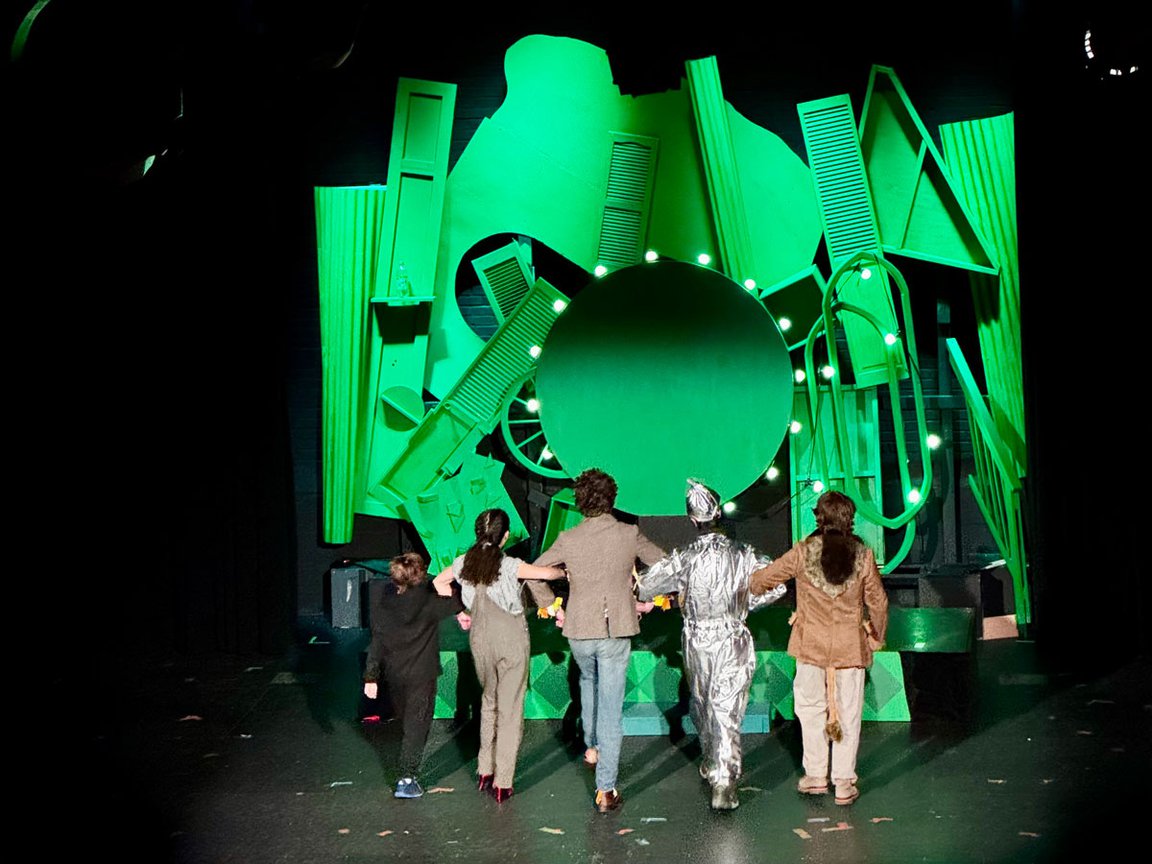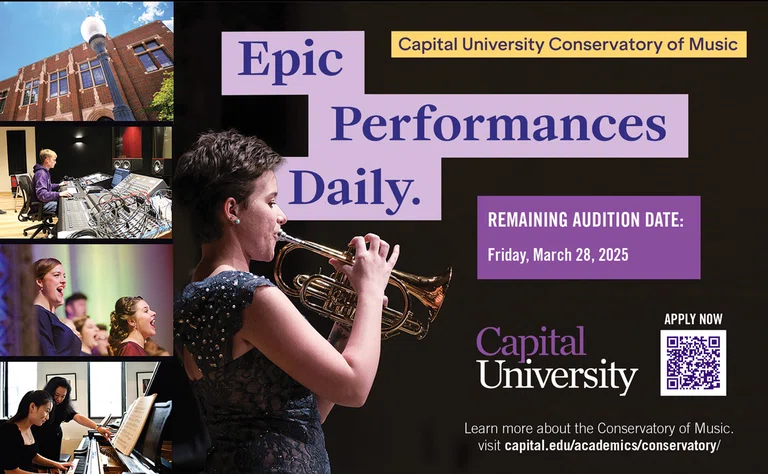©2025 Ohio Music Education Association




Grandview Heights Wizard of Oz

Rohit Kolluri
The Ohio State University
Introduction
Introduction
How does a music teacher shape a child’s first experiences with music? What does a teacher do that makes a student successful in music in later years? Following interviews with middle and high school music teachers, I continued to think about where formal music education begins. For many children, the elementary music classroom is a launch point for music teaching and learning. Their experiences in general music influence their musicianship at the secondary level. The role of mentorship at the elementary level is unique and has different challenges from middle and high school. Following a similar protocol from my previous studies, I interviewed ten elementary school teachers in suburban Columbus, Ohio. In this paper, I examine how these master teachers crafted their philosophies through mentorship, instruction, and connecting with students. These teachers use lessons from their mentors to mentor young musicians. Commentary from teacher participants centered on three main themes: common mentors, instructional delivery, connecting with students. In the next section, I present each theme with narratives from teachers interviewed for this study.
Common Mentors
Common Mentors
Elementary music teachers learn their craft by observing teaching and learning in multiple contexts: formal, informal, and non-formal environments. Similarly, they also learn through continuous teaching experience. At the elementary level, music teachers need to serve the needs of a diverse group of learners who may have very little context or experience in music making. My interview series with elementary music teachers focused on the following categories: 1) mentors in high school, 2) mentors in college, and 3) family members.
Most of the teachers interviewed listed high school and middle school band, choral, and orchestra directors as common mentors. Other mentors mentioned were college instrumental and general music professors. Beyond the university campus, family members and close friends were also listed as being influential in shaping people’s musical values, priorities, and philosophies.
An additional mentor group for these music teachers were other elementary school teachers in subject areas outside of music. While high school and middle school music teachers focus more on music, elementary music teachers must also focus on child development. Therefore, these teachers need a wide range of mentors both in and outside of music. Other elementary school teachers help music teachers in classroom management skills, communication techniques, and ability to foster student engagement.
Delivering Instruction
Delivering Instruction
First, instructional delivery at the elementary level differs from middle and high school in that conceptual material and topics may not be sophisticated. Each lesson has small sequential steps that are broken down even further than what is seen at the middle school level. This approach follows Skinner and Duke’s method of successive approximations, where complex concepts are broken down into smaller concepts. Laying this foundation in small steps is important, as it will serve students well in the future.
Hands-on engagement is important for all students, especially elementary students. Younger learners gain knowledge and experience best through movement, interaction with others, and playing games. All teachers interviewed shared that they use games, kinesthetic activities, and visual aids such as posters to engage students. Through active learning, students internalize concepts more easily. By demonstrating competence and skill mastery, students often develop greater independence and enjoyment in music making. In addition, this sets them up for further achievement in future musical endeavors.
Unlike middle and high school, where students have previous experience and choose to be in the class, elementary students have very little experience and context for music making. It is crucial for teachers to adapt the material for each class. Several of the teachers interviewed shared that they would use the previous year’s performance as a benchmark for each grade, then modify musical material as needed. In my conversations with these master teachers, it is clear that elementary music making plays a fundamental role in musical development. Student-centered instruction at the elementary level is essential. “We are teaching the students, not the lesson” (Jason Bash, Music Teacher, Freedom Trail ES).
Similarly, it is reasonable to assume that if the delivery and participation in a lesson are enjoyable – and fun – students will retain the material learned and will want to continue participation. It is important to balance formal instruction with creative methods of application. Students are more intrinsically motivated to learn and retain information when the lesson is interactive (Kathie Zelnik, Wickliffe Progressive ES). Effective teachers strive to engage students with creative methods of delivery such as games and storytelling. For example, one game a few teachers used was pass the beat where students say one word in “pass the beat” each time a teacher strikes a beat. Teachers must also be passionate about the subject. By demonstrating passion, they are more likely to ignite students’ passion for learning.
Zanesville Jazz Band warming up for the Blue Knights Ball
Connecting With Students
Connecting With Students
Elementary School music teachers differ from secondary music teachers because they serve as musical mentors to all the students in the school building. At the secondary level, music is often an elective and not chosen by every student. In elementary school, all students are required to take a general music class. Therefore, teachers must be able to mentor a wide range of students. Music instruction is important, as is the development of confidence, social skills, and passion for learning. Students need to feel welcome and comfortable before they can fully engage in learning.
Elementary teachers serve as one of the first adult role models for students outside of home. Because of this, their countenance and demeanor can impact students' behavior. A passionate music teacher is more likely to get students excited about learning the content. Many of the teachers interviewed stated that they often dress up or use fun, silly songs to get students excited. Additionally, because elementary teachers are some of the first role models for students, they must encourage student ownership of learning by helping students develop problem solving skills when they run into challenges with concepts. “Relationships—whether mentoring students or future educators—are built through open conversations about strengths and struggles” (Evan McIntyre, McVay ES).
Conclusion
Conclusion
The culminating question I asked each teacher was “If your current self could teach something to your first-year professional self, what would it be?”. One common theme was that as teachers we are lifelong learners. This has been a consistent theme across all my studies. Over time, elementary teachers learn the different personalities of their diverse classroom. In doing so, they begin to understand different challenges faced by different students.
Similarly, teachers must be patient while building a classroom culture. They must set expectations early on and allow the rest to follow. Brian Petit (Stevenson ES) states, “Growth always happens in a community – intuition will get you halfway there”. Having the idea is the first step. The next step is gaining the support of students and other teachers, which develops over time.
Lastly, mentorship is important to the advancement of our field. Everyone needs a mentor, no matter where they may be in their career. Sue Casto (Mary Emma Bailey ES) states, “You cannot do this job alone – every child is unique and has their own challenges”. This further emphasizes how elementary music teachers face unique challenges and need mentors to guide them throughout their career. By embracing mentorship, both as providing guidance and receiving it, they will develop future musicians and promote lifelong learning that strengthens the field of music education.
Click the links to Part 1 and Part 2 to read more about Learning from our Mentors at different levels.
Citations
Duke, R. A. (2024). Intelligent music teaching: Essays on the core principles of effective instruction. Learning and Behavior Resources.
GB;, P. (n.d.). A day of great illumination: B. F. Skinner’s discovery of shaping. Journal of the experimental analysis of behavior. https://pubmed.ncbi.nlm.nih.gov/15693526/
Teachers Interviewed
Cheryl Manbeck, General Music Teacher, Plain City ES
Megan Hennes, General Music Teacher, Alton Darby Creek K-2 (Hilliard)
Jason Bash, General Music Teacher, Freedom Trail Elementary (Olentangy)
Kathie Zelnik, General Music Teacher, Wickliffe Progressive ES (Upper Arlington)
Spencer Kocher, General Music Teacher, Richard Avenue ES (Southwestern City Schools)
Matthew Downing, General Music Teacher, Goshen Lane ES (Gahanna)
Kara Johansen, General Music Teacher, Worthington Hills ES
Evan McIntyre, General Music Teacher, McVay ES (Westerville)
Brian Petit, General Music Teacher, Stevenson ES (Grandview Heights)
Sue Casto, General Music Teacher, Mary Emma Bailey ES (Dublin)
Rohit Kolluri is a student pursuing dual degrees in Music Education and Marketing at The Ohio State University. As a clarinetist, he has performed with ensembles such as the OSU Symphony Orchestra and Wind Symphony, while also serving many leadership roles such as President of the School of Music Double Major Alliance. Rohit has gained valuable experience teaching clarinet and woodwind students across multiple school districts; he also works as an Undergraduate Teaching Assistant at the Fisher College of Business. Passionate about merging music and business, he hopes to create an innovative program that fosters positive impacts in the music community.




